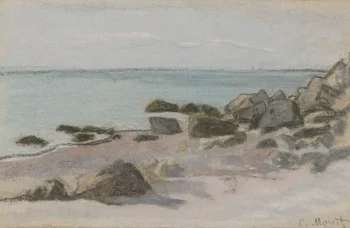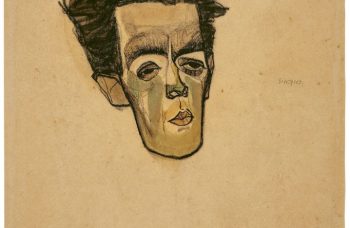Estimated to reach as much as £4 million at auction, a partial statue of the Egyptian god Amen in the likeness of Tutankhamun ultimately realized more than £4.7 million (£5.97 million with commission). The statue was just of the god’s head but it was one of the highlights in Christie’s ‘The Exceptional Sale’ that took place yesterday evening.
Sold to an unnamed buyer, the brown quartzite head was the cause of much concern prior to the sell when Egypt attempted to halt the sale of the sculpture claiming that it rightfully belongs to the country. A few weeks ago, Dr Mostafa Waziri, head supreme council for antiquities for Egypt said, ‘We will do our best to stop this auction immediately. We will talk to the Egyptian foreign ministry and our ambassador in London to do our best to stop it, as we have to check.’ During the auction, around 20 people stood outside the Christie’s auction house in silent protest with signs reading ‘Egyptian history is not for sale.’
Regarding the sale and the issues raised by Egypt, Christie’s issued a statement saying:
This was a rare, beautiful and important work. We recognise that historic objects can raise complex discussions about the past; yet our role today is to work to continue to provide a transparent, legitimate marketplace upholding the highest standards for the transfer of objects. There is an honourable market for ancient art and we believe it is in the public interest that works come out into the open with the opportunity for them to be researched, as well as seen and enjoyed by global audiences.
Christie’s continues to uphold that the statue made it to the auction block through reputable means. The auction house says it acquired the statue from Heinz Herzer, a Munich dealer, in 1985. Before that the statue was bought by Joseph Messina, an Austrian dealer, in the early 1970s and in the 1960s, the statue was ‘reputedly’ in the collection of Prinz Wilhelm Von Thurn und Taxis of Germany.
Waziri, on behalf of Egyptian government expressed his disappointment that the sale continued saying ‘I believe that it was taken out of Egypt illegally … They have not presented any documents to prove otherwise.’ Waziri also said that Egypt hopes to work with the buyer to return the statue to Egypt.
This isn’t the first artefact that Egypt has demanded return of, either. In England, alone, a number of works have come to the country through archeological endeavors and imperialism. the Rosetta Stone, which resides at the British Museum, is probably the most famous work that Egypt has tried to bring back while a number of other countries, including Greece and Benin.
One of the protesters at yesterday’s auction, an Egyptian graphic designer named Ibrahim Radi, told The Guardian ‘We are against our heritage and valuable items [being] sold like vegetables and fruit.’





